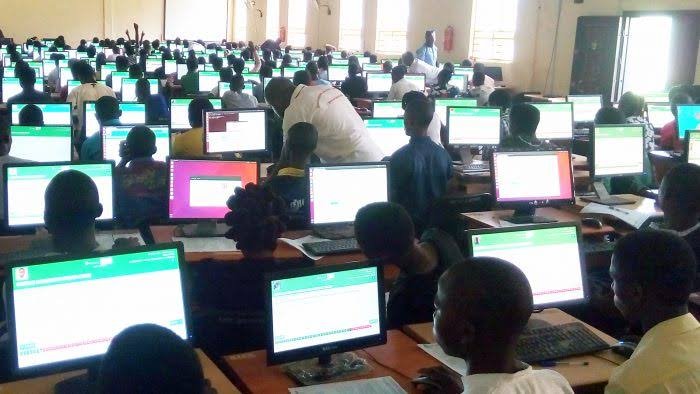NIGERIA’s secondary schools may have to spend an eye-watering ₦1.6 trillion to meet the West African Examinations Council (WAEC)’s new Computer-Based Testing (CBT) requirements ahead of the 2026 West African Senior School Certificate Examination (WASSCE).
News Point Nigeria reports that the council recently announced that schools seeking accreditation as CBT centres must have a minimum of 250 functional desktop computers, a robust server, a local area network (LAN), CCTV cameras, and other ICT infrastructure in place before they will be allowed to host candidates.
In a statement, WAEC explained that the move is part of a comprehensive plan to fully migrate its examinations to CBT format in line with global trends in assessment.
“Schools that cannot meet these standards will be assigned to designated external centres, and WAEC will not lower its standards for hosting schools,” the statement read.
News Point Nigeria‘s market analysis shows that a fairly used UK-imported desktop computer costs between ₦250,000 and ₦300,000 at major IT hubs such as Lagos and Kano’s Computer Villages.
At an average of ₦68 million per school, procuring 250 desktops alone without factoring in networking equipment, CCTV, UPS systems, or electricity backup would cost Nigeria’s 23,554 approved WASSCE schools a combined ₦1.6 trillion.
The announcement has sparked heated debate among teachers, school owners, and education policy experts, many of whom fear that the ambitious timeline could exclude rural schools and push up tuition fees.
Salamatu Inuwa, a teacher, said the requirement is almost unrealistic for public schools: “Two hundred and fifty systems are not a small investment. Beyond buying them, schools must power, maintain, and secure them. Without government subsidy or private-sector partnership, most rural schools will be locked out.”
Education administrator Isaiah Ogundele argued that the CBT rollout is premature: “Even 100 schools may not meet the requirements for a functional take-off today. Government-owned schools should have been equipped long ago. Many students trek through forests or cross rivers to get to school, where will they find 250 computers?”
Jessica Osuere, CEO of RubiesHub Educational Services, however, welcomed the idea, describing it as a bold step towards examination integrity, but advised a phased rollout.
“A gradual rollout with public-private partnerships will make it achievable. Anything apart from that is like chasing shadows,” she said.
A BBC report also notes that UK education authorities see paper exams as still useful, especially for fair assessment across all student categories.
Nigeria’s digital readiness remains low. Data from the Universal Basic Education Commission shows that half of public schools lack any digital facilities, while internet penetration remains at just 36 percent.
Teachers like Chris Nmeribe warn that the cost of compliance will eventually fall on parents: “The time frame, cost, and maintenance make it untenable. Schools will increase fees, and this could raise dropout rates, especially in rural areas.”
Educationist Ike Osuagwu-Chilaka noted that while the policy could improve students’ ICT skills and examination management, economic constraints make the directive unworkable within the current deadline.
Stakeholders are calling on WAEC to consider designated CBT centres, similar to the Joint Admissions and Matriculation Board (JAMB) model, where schools without adequate infrastructure can book slots for students.
Nmeribe also suggested a cost-sharing arrangement where WAEC contributes to the infrastructure investment, given that the CBT migration ultimately benefits the council.
WAEC’s plan is widely seen as a step towards modernising assessment and curbing exam malpractice. But without government support, longer transition timelines, and equitable implementation, experts warn that the move could deepen Nigeria’s educational inequality and widen the digital divide between urban and rural schools.







